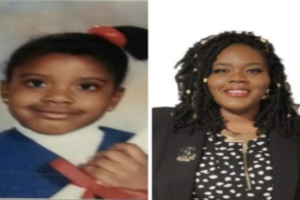At least five counties have chosen to leave money on the table
Five Indiana counties are choosing to give up a combined maximum of $3.3 million in enhanced public health funding from the state in 2024, with the bulk of that funding coming from Johnson County, which qualified for up to $2.1 million in funds.
But Gov. Eric Holcomb said Tuesday he is happy with the progress — of Indiana’s 92 counties, 85, or 92%, have chosen to join the state program with a few days left before a Sept. 1 deadline.
“I think if you would have asked most (people) a few months ago, some smart people told me maybe 50% (would opt in),” Holcomb said. “… this is no state takeover; this is no mandate. This is about local providers and their community; it is about addressing quality of place.
“Hopefully they’ll see the light and seek to join.”
None of the Johnson County commissioners responded to calls from the Indiana Capital Chronicle nor did the public health department.
Johnson County leaders told the Daily Journal earlier this month that the health department didn’t need the funds and already performs the “core public health services” required by the grant funding.
“We’re not greedy. I mean, I just think the consensus is we don’t need it. So why would we take it?” Johnson County Commissioner Kevin Walls told the local publication. “… It could be better utilized someplace else. That’s kind of the bottom line.”
Saying no before the deadline doesn’t prohibit the municipality from opting into the funding in future years. Public health departments in four other counties, Whitley, Wells, Fountain and Crawford, all indicated that their commissioners declined the funding as well.
Health departments and commissioners in an additional two counties — Adams and Harrison — didn’t respond to calls about whether they’d meet the deadline for the public health funds.
The Indiana Capital Chronicle called stakeholders in each of the 15 counties the Indiana Department of Health map says haven’t yet committed. Eight of those counties indicated that they had decided to opt-in recently but hadn’t yet finalized their paperwork, meaning at least 85 counties have committed to participating in the state program.
The stakes
A yearlong analysis from the Governor’s Public Health Commission found that Indiana spends a paltry $55 per resident annually on average when it comes to public health compared to the nationwide average of $91.
Spending varied widely from county to county, from $1.25 in Shelby County to $83 in Marion County. Of the five confirmed counties that are bypassing the funding, none spent more than $15 per capita on public health annually.
In Wayne County, poor health metrics and lagging funding pushed commissioners to plan to accept the funds in a Wednesday meeting. That came after citizen input and a planned budget.
“There was no prize for being first,” Wayne County Commissioner Jeff Plasterer said. “We went about it deliberately and we have a plan that the council, commissioners and board of health buy into.”
He said there was some public opposition, mostly over maintaining local control.
“We tried to address every issue raised … called the governor’s office over a few things,” Plasterer said. Discussions with his local state Rep. Brad Barrett, R-Richmond, also comforted the commissioners.
“He assured us the legislature crafted a bill that protects counties. We are happy to move forward,” Plasterer said.
In an effort to incentivize counties to better address the public health needs of their residents, the state committed $75 million in grant funding the first year to bolster budgets — so long as counties continued to pay the average amount allocated in recent years. Each government unit is guaranteed a minimum amount of grant dollars and receives the maximum if they meet a set of goals established by the state health department.
Holcomb did express concern about the initial funding provided by state legislators considering that so many counties chose to participate.
“I would have like to have gotten more funding,” Holcomb said. “… divided out amongst more people, it’s less money per county. So we’ve got a long way to go. But like so many things in life, half of it’s just getting going in the right direction and then getting some momentum.”
“We’re well on our way,” he continued.
Another $150 million has been set aside for the second year.
The challenges
A vocal minority of Hoosiers protested the bill establishing the grant funding, sharing concerns about government distrust — especially toward frontline public health workers in the field — following the COVID-19 pandemic. Several county meetings over the funding drew conflicting perspectives on state “control” as commissioners weighed the funding and its requirements.
Not every county forgoing the funding did so due to political reasons, however.
Marlene Hoag, the newly minted administrator of the Wells County Health Department, said the timing wasn’t right for her office following a staffing shuffle.
“We went through some changes here in the last couple of months and so we have decided not to opt into the funding; the commissioners had been hesitant as well,” Hoag told the Indiana Capital Chronicle. “We’re kind of going through a transition and we’re low on help. So to administer a grant or that funding, we just felt like we didn’t have the manpower to be able to carry through.”
Indiana Capital Chronicle Reporter Casey Smith and Editor Niki Kelly contributed to this report.
This article originally appeared on Indiana Capital Chronicle.







